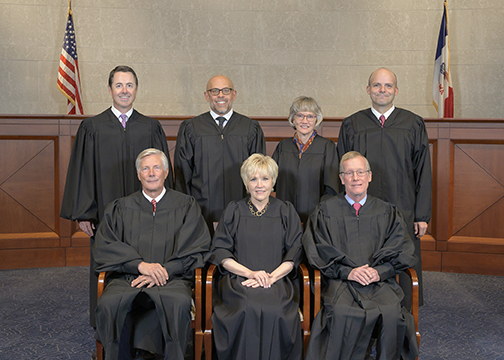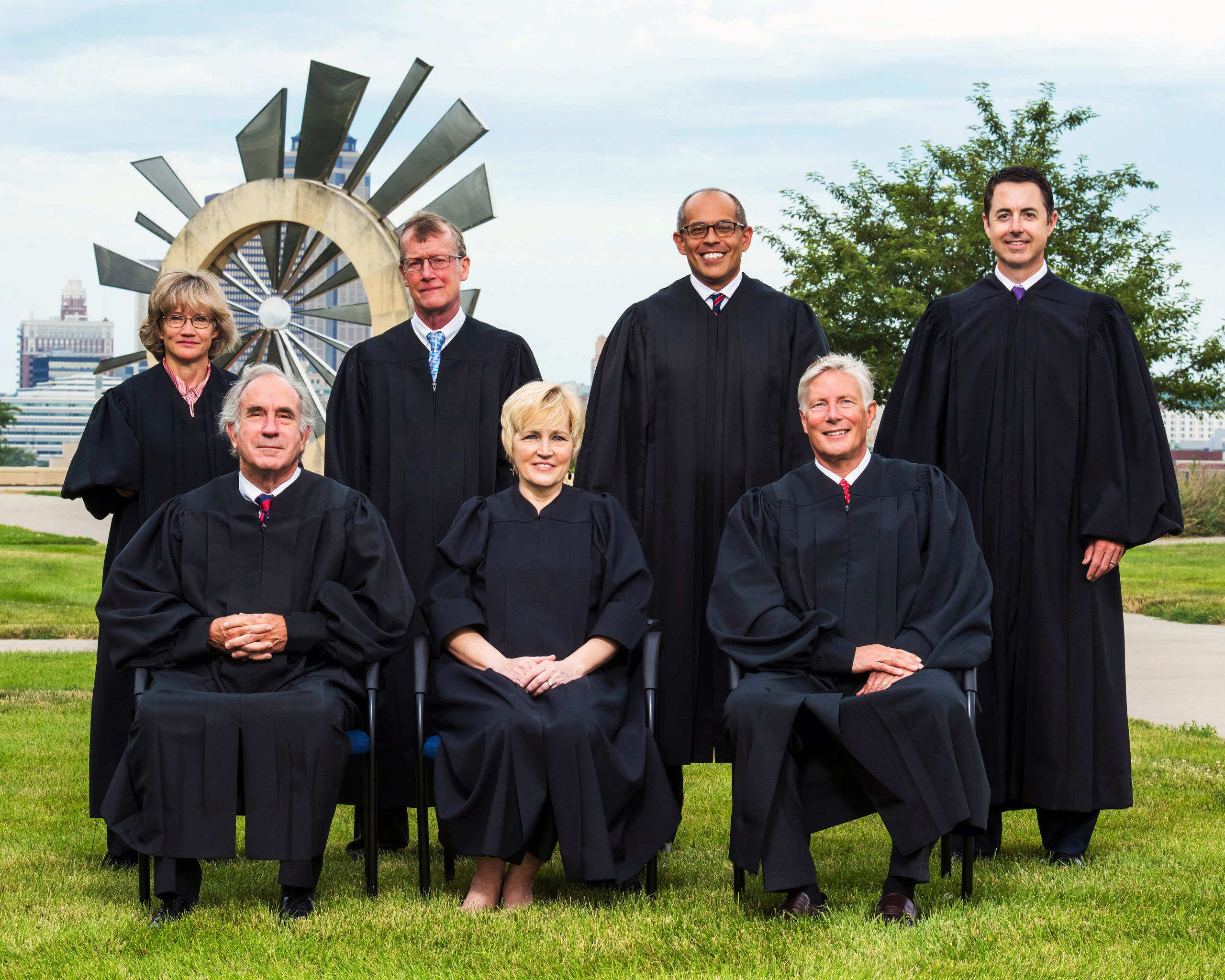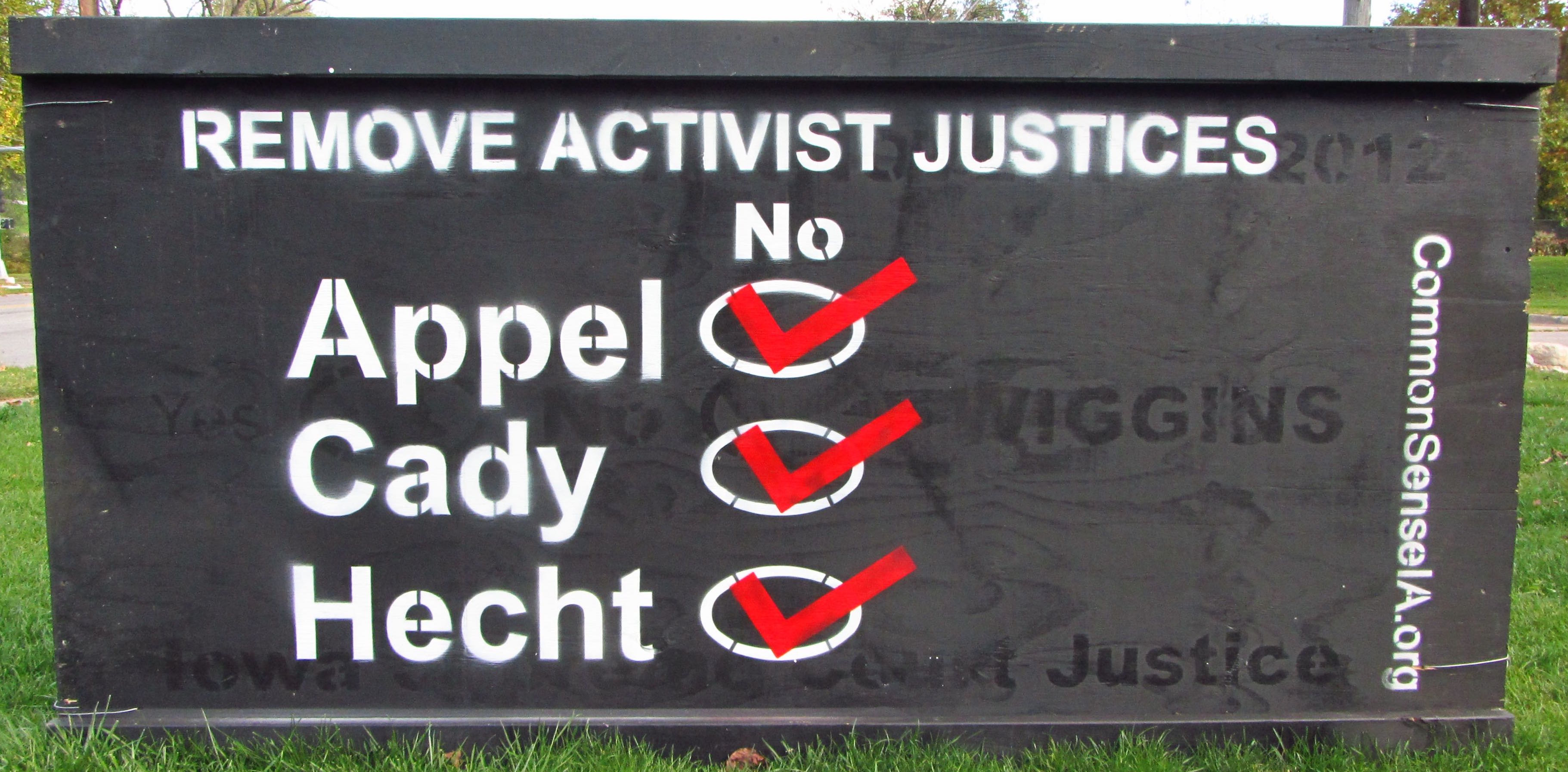Governor Terry Branstad today named Edward Mansfield, Thomas Waterman and Bruce Zager to fill the three Iowa Supreme Court vacancies created by last November’s judicial retention vote. Mansfield practiced law in Des Moines for many years before Governor Chet Culver appointed him to the Iowa Court of Appeals in 2009. Waterman has long been an attorney in private practice in Pleasant Valley. Zager practiced law in Waterloo before Governor Tom Vilsack named him to the First District Court in 1999. He “spent 18 years in private practice and served part time as a Black Hawk Assistant County Attorney for 12 years.”
KCCI posted Mansfield’s interview with the State Judicial Nominating Commission here, Waterman’s interview here and Zager’s interview here. Branstad privately interviewed the nine finalists for the Supreme Court vacancies last week. The governor’s official statements announcing all three appointments are after the jump.
All three appointees are registered Republicans. Waterman has made the most political contributions, primarily to Republicans, and his $7,500 donation to Branstad’s gubernatorial campaign attracted some media attention last month. (Waterman also gave $250 to the attorney general campaign of Brenna Findley, who is Branstad’s legal counsel.) Asked whether the donation to his campaign made him uncomfortable, Branstad joked, “No, I think that’s great […] Listen I wish more of them had contributed.” He added that private citizens “have a right to contribute and participate in the political process,” and that Waterman’s donation would not influence his decision.
In a statement, Supreme Court Chief Justice Mark Cady praised the three appointees as well as Branstad and members of the judicial nominating commission. I’ve posted that statement after the jump. Cady’s colleagues chose him as chief justice after voters rejected Marsha Ternus, David Baker and Michael Streit. Once Mansfield, Waterman and Zager are sworn in, all seven Iowa Supreme Court will hold a new election for chief justice.
Although all the appointees are qualified, I find it disappointing that Iowa will have an all-male Supreme Court for the first time since 1986. The only woman on the short list, University of Iowa law professor Angela Onwuachi-Willig, had many qualifications but had no chance of being appointed by Branstad, for obvious reasons I discussed here. In fact, the governor didn’t even pretend to think seriously about appointing Onwuachi-Willig. Before interviewing the finalists, he publicly expressed regret that the State Judicial Nominating Commission didn’t send him more women candidates.
I share Cris Douglass’ view that including only one woman on the short list sent to Branstad reflects poorly on the nominating process. After the jump I’ve posted excerpts from a guest column Douglass published in the Des Moines Register on February 4. She notes that the men and women who applied for Iowa Supreme Court vacancies had comparable experience and backgrounds, yet the men had a far better chance of becoming finalists. Seeing highly qualified woman applicants passed over gives the impression that either commissioners had a conscious or unconscious bias toward male applicants, or perhaps that some sought to force an embarrassing choice on Branstad. He appointed both previous women who have served on Iowa’s high court (Linda Neuman and Marsha Ternus) and likely would have appointed a woman if any politically palatable female candidate had been a finalist.
Adding three Republicans to the state Supreme Court is unlikely to end legislative efforts to reform Iowa’s judicial nominating process or restrict the Supreme Court’s powers. More on that in a post to come. Share any comments related to the Iowa Supreme Court in this thread.
UPDATE: I’ve added below the statement from former Iowa Lieutenants Governor Sally Pederson and Joy Corning on behalf of the Justice Not Politics coalition. That nonpartisan coalition supports keeping the merit selection system Iowa has used for choosing judges since 1962. Justice Not Politics leaders recently submitted more than 3,200 signatures to Iowa House and Senate leaders calling for an end to “any conversation about impeaching Supreme Court justices.” Some conservative Republicans have advocated impeaching the four remaining justices who concurred in the 2009 Varnum v Brien ruling on marriage. The effort is unlikely to clear the Iowa House Judiciary Committee.
SECOND UPDATE: The Des Moines Register notes that Iowa is now one of only three states with no women on its highest court. In an interview, Branstad “declined to answer a question about whether he’d received a satisfactory list of candidates from the commission.”
That same Des Moines Register article quotes Iowa House Judiciary Committee Chairman Rich Anderson as praising the state’s “great judicial merit selection process.”
At the bottom of this post I’ve added more reaction to the Mansfield, Waterman and Zager appointments.
Continue Reading...




